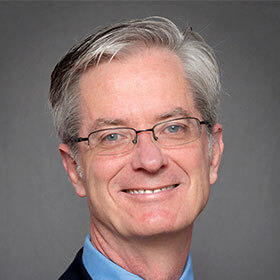
S2-EP11: Sean Bailey on Financial Planning For a Gap Year
SUMMARY
Debbie talks to finance expert Sean Bailey about all the issues surrounding planning for a gap year. Create a budget, assess your savings, and don’t forget the cost of the life you are stepping out of for a period. Use a spreadsheet, use a whiteboard, use the back of a napkin, but force yourself to do the calculations.
EPISODE NOTES
Debbie speaks with Sean Bailey, founding editor-in-chief of Horsesmouth, a New York-based company that creates educational programs on retirement planning, Social Security, Medicare, college planning, cybersecurity, and more for industry professionals.
The focus of their conversation is financial planning around a gap year. Sean shares some basic practicalities: you have to create a budget, you have to assess your own situation (what money have you saved, can you dip into it now, etc.) and you have to consider the real cost of a gap year. That usually means stepping out of your current life for a period while still covering the costs of that life.
Use a spreadsheet, use a whiteboard, use the back of a napkin, but force yourself to do the calculations.
He talks about a concept he calls “retire at 60, or earlier… work til 70!” By that he means start thinking creatively now about your financial situation. Take advantage of opportunities to explore different kinds of work, different ways of making money and different ways to build flexibility into your life.
In other words, start living your dream even before you retire or consider taking an official gap year.
Sean also talks about his experience of taking a gap two years, almost thirty years ago, to join the Peace Corps. Sean and Debbie share similar values around the idea that we should pursue our dreams now, not later. But with a reasonable amount of planning.
What they talk about:
- MUG: Mortgage, Utilities, Groceries and the importance of considering these things, plus healthcare, when planning a gap year.
- The two different types of money: qualified and unqualified.
- The real cost of a gap year: leaving your default life temporarily while still maintaining it while you’re gone.
- The uncertainty of a gap year even when the finances are all planned out.
- His mantra: “retire at 60, work til you’re 70.” Look for opportunities to take mini “gap” breaks. Going to Arizona for work? Turn it into a seven-day trip to visit the Grand Canyon and hike in Sedona.
- Skilling up: learn new skills in areas you love to supplement your retirement and/or to keep active in a field you’re passionate about.
- The advisability of consulting a financial professional before claiming your social security and/or pulling the trigger on your retirement/gap year.
Mentioned in this episode:
- Sean Bailey bio
- Horsesmouth
- 16 Lifestyle Questions to Ask If You Are Retiring (PDF)
- 5 Questions to Ask 5 Years Before You Retire (PDF)
- FIRE movement (Financial Independence, Retire Early)
Support this podcast:
- Leave a review on iTunes
- Subscribe via Apple Podcasts, Google Podcasts, Stitcher or Spotify
- Interested in sponsoring this podcast? We have an avid audience of midlife, and older, listeners. Contact Debbie Weil.
Credits:
- Host: Debbie Weil
- Producer: Far Out Media
- Music: Lakeside Path By Duck Lake
Connect with us:
- Email: [email protected]
- Twitter: @debbieweil
- Insta: @debbieweil
- Debbie and Sam's blog: Gap Year After Sixty
Thanks to our media partners
 Encore.org, our newest media partner, is an ideas and innovation hub tapping the talent of those 50+ as a force for good. Founder and CEO Marc Freedman is an award-winning social entrepreneur and author, most recently, of How to Live Forever: The Enduring Power of Connecting the Generations. Looking for a great gap-year transition program? Check out Encore Fellowships, which match skilled, seasoned professionals with social-sector organizations in high-impact, paid assignments.
Encore.org, our newest media partner, is an ideas and innovation hub tapping the talent of those 50+ as a force for good. Founder and CEO Marc Freedman is an award-winning social entrepreneur and author, most recently, of How to Live Forever: The Enduring Power of Connecting the Generations. Looking for a great gap-year transition program? Check out Encore Fellowships, which match skilled, seasoned professionals with social-sector organizations in high-impact, paid assignments.

Modern Elder Academy is a program dedicated to navigating mid-life transitions. MEA, based in Baja California, Mexico, provides the place and the tools to start reframing your lifetime of experience. Grow whole, not old. Founder Chip Conley is a New York Times bestselling author, award-winning hospitality entrepreneur and a rock star of the mid-life transition movement. His newest book is Wisdom @ Work: the Making of a Modern Elder.
 Next For Me is an important new resource for the 50+ crowd focused on rewriting life. Taking a gap year or timeout may be the best way to figure out "what's next" when you're in this stage of life. Founder Jeff Tidwell explains, Next For Me "connects and inspires our generation to evolve our post-50 lives through new work, a new purpose, or a new social contribution."
Next For Me is an important new resource for the 50+ crowd focused on rewriting life. Taking a gap year or timeout may be the best way to figure out "what's next" when you're in this stage of life. Founder Jeff Tidwell explains, Next For Me "connects and inspires our generation to evolve our post-50 lives through new work, a new purpose, or a new social contribution."
